- Home
- Catherine Jinks
A Plague of Bogles Page 13
A Plague of Bogles Read online
Page 13
Mabel stared at him for a moment, looking surprised.
“Mousy hair,” Jem continued. “Red nose. Sulky expression.”
She shook her head regretfully, then addressed the patrons lined up in front of her. “Anyone here know a Eunice Pickles? Spotty and fat, with a walleye?”
Jem waited hopefully, but the only response was a chorus of negatives. Some of the men chaffed Mabel, claiming that they would never dally with such a homely creature.
Mabel cast Jem a harassed, apologetic glance.
“Where is Mr. Bunce?” a voice murmured in Jem’s ear. It was Josiah Lubbock. Having abandoned his place at the other end of the bar, he had battled through the crowd to reach Jem’s side. “He’s not ill, I hope?”
“No,” Jem replied shortly. “But he’d be sick as a cat if he laid eyes on you now, lurking about like a prigging valet. Why don’t you mind yer own business?”
“That’s exactly what I am doing,” said Mr. Lubbock. “I’m minding my own business by attempting to expand it.”
“By leaching off others, you mean,” Jem scoffed. He was about to wriggle away when a brilliant notion struck him. This slang cove wants to make use o’ me, he thought, but what if I make use of him, instead?
“I hear you vanquished two bogles in the Holborn Viaduct this morning,” Mr. Lubbock went on, smiling his greasy showman’s smile. “Or so I was informed by that watchmaker over there, who had it from the barmaid—”
He stopped suddenly as a bell began to toll outside. Everyone in the taproom paused to listen. When Jem saw several of his neighbors cross themselves, he realized that the Newgate Prison bell was ringing—and that someone was about to be hanged in the prison yard.
“May God have mercy,” the navvy muttered.
And an old man said, “It don’t seem right, the way they’re scragged nowadays. Ain’t no ceremony to it, with no crowds and no notice, and us here lushing down blue ruin, too ignorant to salute the poor soul’s passing, since we don’t even know what he’s done.”
There was a rumble of agreement. Then Mabel, who was hauling at a beer tap, remarked, “All the licensed victuallers hereabouts is poorer since they stopped public hangings. It was good business, I’ll say that.”
“Because folk need a spectacle!” Mr. Lubbock insisted, addressing the room at large. “Especially if it involves bloodletting. Why, ever since the days of the ancient Romans, people have been demanding blood sports. And they’ll pay good money to see rat baiting, or cockfighting.” He winked at Jem, who jerked his chin at the door.
“We need to talk,” Jem mumbled. “In private.”
Mr. Lubbock nodded. Then he drained his glass, slapped it down on the sticky surface in front of him, and eased his way through the press of bodies around the bar.
He finally caught up with Jem in the street, where the foot traffic had slowed to a dawdle. Everyone was listening to the Newgate bell—even the costers.
“I’ve a proposition for you,” Jem announced. “A mutual agreement, like.”
“Fire away,” said Mr. Lubbock.
Jem cleared his throat, trying to ignore the sudden pang of guilt that assailed him. He knew that Alfred wouldn’t approve of his plan. But then again, it was a good plan. And it wouldn’t harm anybody.
“There’s a plague o’ bogles hereabouts,” Jem began, with a nod at the tavern door. “You may have heard the folk in there fretting over it.”
“I haven’t,” Mr. Lubbock replied. “But carry on.”
“We’ve killed four bogles in this quarter already. What I’m about to do is go knocking on doors, to ask about missing children.”
“And you’d like me to help?” said Mr. Lubbock.
“I would.”
“In exchange for . . . ?”
Jem didn’t reply immediately. He was too busy thinking. At last he declared, “If you find a missing kid, you’ll find a bogle, like as not. From there, it’s up to you.”
Mr. Lubbock pursed his lips and regarded Jem shrewdly. “You want me to tout for your master?”
Jem shrugged.
“If I find him clients, and cry up his services, it’s only fair that I profit from my efforts,” Mr. Lubbock pointed out. “A small, select audience of spectators could help defray the cost of the bogler’s visit. Why, I could offer his clients a cut of my takings, with which they might pay his fee!”
“You could,” said Jem. Though he didn’t like the idea, he realized that it would benefit poorer people who couldn’t afford a bogler. And if Alfred refused to cooperate—well, that wasn’t Jem’s fault, was it? Jem had never once tried to claim that Alfred would agree to the plan.
It was shifty behavior, of course. Jem knew that. But it was no more shifty than Josiah Lubbock.
“We might have a notice put up in that window, seeking information about children missing locally.” Mr. Lubbock gestured at the Viaduct Tavern. “I’m sure the delightful Miss Lillimere would oblige us.”
“Mebbe,” Jem had to admit. “Though I’ll wager there’s some round these parts as cannot read.”
“Then others could read it to them.” The showman spoke with complete confidence. “I could apply to the landlord. I could appeal to his charitable and neighborly instincts.”
Jem pulled a sardonic face.
“I could say to the landlord, ‘Mr. Watkins, will you join me in ridding Newgate of a scourge more terrible than typhoid? I am proud, sir—proud and eager—to be walking the streets in search of these unholy, bloodsucking vermin.’” Mr. Lubbock cut a sidelong glance at Jem before concluding, in a sly voice, “I suppose you don’t need me to approach the Bluecoat School? Since we already know it’s infested.”
Jem sighed. The man was incorrigible.
“So are you interested?” Jem asked wearily. “If not, I’ll be on me way.”
“To look for Eunice Pickles?”
Mr. Lubbock smirked. Jem’s heart skipped a beat. “What do you know about Eunice Pickles?” he demanded fiercely.
“Only that you’re keen to find her. A middle-aged lady, I believe? Pale and plump and walleyed?”
They stared at each other for a moment. Mr. Lubbock seemed quite pleased with himself. Jem was wondering if he’d made a big mistake.
He’d been hoping to introduce the subject of Eunice Pickles casually, as an afterthought. Yet the showman had such an instinct for ferreting out secrets that he’d already grasped the importance of Eunice Pickles. He seemed to sense that she was the real reason behind Jem’s search for missing children.
It was maddening.
“Her ma owes me a debt,” Jem said at last. “And since I ain’t the only one she’s dodging, it’s likely she’s changed her name.”
“I see.” Mr. Lubbock nodded as if this all made perfect sense. “And should I happen to find her, what’s it worth to you? Once she’s paid her debt?” Seeing Jem blink, he elaborated. “A five-shilling finder’s fee, perhaps?”
Jem nearly laughed out loud. Suddenly he felt quite at home—and ready to deal with a man who understood that you could put a price on anything.
It occurred to him that Mr. Lubbock and Sarah Pickles would have got along very well.
“No.” He shook his head, even though he knew that he was bargaining over a cut of nothing at all. “That’s more’n she owes me.”
“Two shillings?”
Jem snorted.
“A quarter of what you collect, then,” said Mr. Lubbock. “That seems fair.”
Jem agreed, with feigned reluctance. “But you ain’t to warn either of ’em,” he growled. “Eunice or her ma.”
Mr. Lubbock raised his brows. “Are they aware that you work for a bogler?”
“No.”
“Do I have your permission to name Mr. Bunce, then?”
“It would be better if you didn’t. She knows him, too.”
“Very well.” Having satisfied himself on this point, the showman tackled another. “And may I ask what Miss Eunice’s mother looks like?”
“Like a leg o’ mutton gone bad,” Jem spat. Then he realized that he shouldn’t let his hatred show—not to Josiah Lubbock. “She’s old, and fat, and wrinkled like a prune,” he went on, more calmly. “Her hair’s gray and she favors coal-scuttle bonnets.”
“And she hails from?”
“Bethnal Green.”
Mr. Lubbock inclined his head. “Then I’ll keep my ears pricked for East End vowels,” he promised, “and my eyes peeled for coal-scuttle bonnets.”
“You can take the north side o’ Newgate,” Jem instructed, pointing up Giltspur Street. “I’ll take the south.”
“And meet again where? At the tavern?”
“At Mr. Bunce’s crib. Tomorrow morning.” Jem wasn’t going to utter a word about his appointment with Alfred at nightfall. He had no intention of arriving on the matron’s doorstep with Josiah Lubbock in tow. “But don’t bother to show yer face if you ain’t got nothing to offer,” Jem added. “For I’ll not be inclined to let you in.”
“Oh, I always have something to offer,” Mr. Lubbock replied serenely. Then he simpered at Jem. “I’m glad you’ve had a change of heart, by the by.”
Jem frowned. “A change of heart?”
“About not trusting me well enough to be beholden to me.”
“You’ve a good memory,” Jem conceded, ignoring the twinkle in the showman’s eye. “But make no mistake, sir: I still don’t trust you. And I ain’t beholden to you.” He held out one dirty hand, fixing Mr. Lubbock with a bright, challenging look from beneath the brim of his baggy brown cap. “This here is plain dealing. Tit for tat. We’ll both get something out of it and walk away clean.”
“That we will,” Mr. Lubbock confirmed. Then he shook Jem’s hand, adjusted his bowler, and headed off down Giltspur Street.
Jem hurried away in the opposite direction, toward Warwick Lane.
20
Looking for Eunice
Jem began his search on Warwick Lane because he’d last seen Eunice heading in that direction. To Jem, Warwick Lane looked like the kind of street that Sarah Pickles and her daughter had always occupied in Bethnal Green. It was narrow, dirty, airless, and faintly threatening. But the farther he went, the more clearly he saw that a city slum wasn’t quite the same as a rookery in the East End.
For one thing, the buildings in Warwick Lane were taller and older than most East End buildings. And though some had fallen into disrepair, it was clear even to Jem that many of them had once been very fine—unlike the buildings in Bethnal Green. What’s more, the city crowds were sprinkled with lawyers and physicians and merchants, while the streets of Bethnal Green were largely peopled with poor folk: seamstresses, boot makers, navvies, pickpockets.
The city businesses were more prosperous too. Jem’s first stop on Warwick Lane was a printing office, which was papered with bills and bursting with books and pamphlets. All the men in this office could obviously read, from the refined young clerk ordering a gross of leaflets to the burly typesetter with big shoulders and ink-stained hands. When Jem stuck his head through the door, he took one look and instantly retreated, before anyone inside could tell him to hook it.
He knew that Eunice Pickles would never set foot in such a place.
So he revised his original plan, deciding to concentrate on public houses. The Bell, on the western side of the street, was an old-fashioned coaching inn built around a cobbled court. It was several stories high, with here and there an outbreak of long, wooden balconies that were stacked one above the other, like theater galleries. People hung over the balustrades, smoking and spitting, while others slouched at ground level, surrounded by straw and horse manure. A clutch of old dog carts moldered near the stables, which were as bad as anything in Bethnal Green.
Jem entered the Bell’s courtyard from Warwick Lane, through a large, square opening high enough for a man on a horse. The taproom was immediately to his right. It should have been a cheerful place, because its windows formed a wall of glass that overlooked the courtyard. But when Jem walked in, he saw that the glass was so dirty, and the bar itself so old and sooty, that it wasn’t cheerful at all.
The potboy didn’t know anything about missing children. Nor had he heard of Eunice Pickles. As for his patrons, they were all from out of town. So Jem abandoned the bar and did a quick circuit of the courtyard. Here he found a few locals, including a groom, a cook, and a knife grinder.
But none of these people could help him.
The Old Coffee Pot was Jem’s next port of call. It stood near the entrance to Newgate Market, which occupied a small square tucked away behind Warwick Lane. Most of the butchers had recently moved to the new markets at Smithfield, so the pavilion in the center of the square was all but deserted. Even the clock on its cupola had stopped. The tavern was busy enough, though—and when Jem spoke to the untidy blond barmaid (who screeched her orders like a parrot as she slung quart pots around as if they were teacups), she was surprisingly helpful.
“Why, yes,” she said. “We had a lad go missing here only last week. He were a printer’s devil, and tried to pay for a pint o’ porter with a bad shilling. When I challenged him on it, he ran away, with a good many customers in pursuit. But no one could catch him. They say he vanished into thin air.”
“He ducked down into the vaults below the market stalls,” an eavesdropping patron interrupted, “and we never did find him.”
“I daresay he kept hidden in some dark corner, then seized his chance when he could,” was the barmaid’s theory.
But Jem wasn’t so sure about that. “There’s vaults under the market?” he demanded.
“So I’ve heard,” said the barmaid, “though I ain’t never seen ’em. They’re old storage cellars, from the days when Newgate had a market beadle and a slaughterhouse, and more horse-drawn railway vans coming in and out than there’s fleas on a dog.” She admitted that she’d not heard of any other strange disappearances but promised to spread the word.
Unfortunately, she couldn’t recall ever having laid eyes on Eunice Pickles.
By the time he left the Old Coffee Pot, Jem was halfway convinced that there had to be bogles under Newgate Market. So he went to make inquiries at the Sun and Last Inn, which opened directly onto the market square. Here he heard about the printer’s devil all over again, though no one seemed to know much about the underground vaults. Someone did mention an apprentice called Tom Peel, who had gone missing a month or so previously from a brass foundry in the old College of Physicians, just down the road. But then someone else pointed out that Tom had been a ne’er-do-well who had spent all his time threatening to stow away on a ship bound for America. And it was generally agreed that if he hadn’t gone to sea, the boy had probably been murdered.
He was that kind of lad, according to the landlord. A bad lot.
Since Jem couldn’t find anyone at the Sun who recognized his description of Eunice Pickles, he moved on down Warwick Lane, past something that must have been the old College of Physicians. It had a great domed roof held up by massive stone pillars, and looked rather like a bank, or a church. But it was also dingy and dilapidated, with only the brass foundry and a squalid collection of butchers’ shops cluttering up its inner court.
Most of the butchers who worked there were drinking in a nearby tavern called the Three Jolly Butchers. Its landlord, Mr. Quick, didn’t know Eunice Pickles. He did, however, know Tom Peel. Tom had been a regular patron but had died of the grippe in a Portsmouth hospital. “I swear ’tis true,” Mr. Quick said, “for I had a letter from his poor mother, who could not get Tom’s indenture money back.” In other words, Tom Peel had not mysteriously vanished after all—though Mr. Quick knew of three other children who had. “Name o’ Moggs,” he explained. “When their mother died, she left ’em all alone in the world. The eldest daughter did piecework at home, making hairnets, while the boy cleaned boots. But one day they all disappeared and have not been seen since.” After a moment’s thought, he added, “People say they went to a wor
khouse. What I say is: Why did they leave their tools behind? All their needles and brushes were still in the cellar, along with their clothes and their bedding—”
“They lived in a cellar?” Jem interrupted sharply.
“Like beggars in Saint Giles,” Mr. Quick confirmed. “And paid two shillings a week for the privilege.” He shook his head in disgust. “Their lodgings were falling down around their ears—and still are. The sooner they demolish that old cesspit, the better. ’Tis a blot on the neighborhood, for all its past fame.”
He was referring to the Oxford Arms, which stood a little farther along Warwick Lane, down a short passage. It was another galleried coaching inn, even bigger than the Bell, but its rooms were now let to long-term tenants and its stables were stuffed with costers’ carts. When Jem arrived there, he found two women tearing each other’s hair out in the cobbled yard, as dozens more leaned over the balcony railings, urging them on. The fight ended when one woman was flung into a stack of baskets and burst into tears. The victor stomped off, muttering darkly.
There was a murmur of disappointment from the audience.
Meanwhile, Jem was scanning the face of every spectator, fully expecting to spot Eunice Pickles. But he didn’t; she wasn’t there. Disappointed, he then began to inquire after the missing Moggs children, darting around to catch people before they drifted back into their grimy, tumbledown rooms.
“Indeed, I spoke to that family once or twice,” a skinny Welsh girl finally admitted. She was a fur puller by trade, so her clothes were covered in cat hair, and she had a dreadful cough. “They lived in the old beer cellar, but they’re gone now. And not a soul has lived there since.”
“Why not?” asked Jem.
“Duw, and would you show me who’d want to?” She shuddered. “You might as well crawl into a grave.”
She then pointed at a wooden hatch set into the ground near the old bar. Lifting this hatch, Jem saw a rickety ladder leading down into a black pit. The stench that wafted up was sickening—a mixture of stale beer, mold, sewage, and something else.

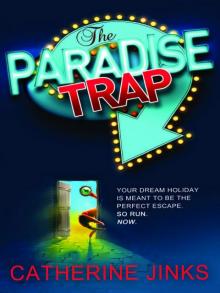 The Paradise Trap
The Paradise Trap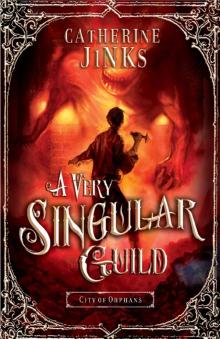 A Very Singular Guild
A Very Singular Guild Eloise
Eloise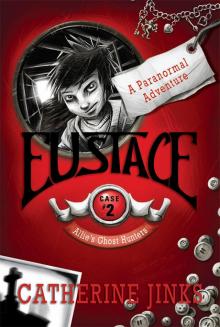 Eustace
Eustace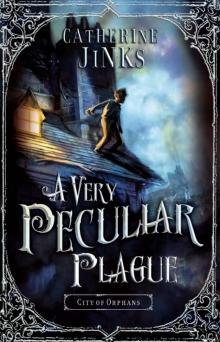 A Very Peculiar Plague
A Very Peculiar Plague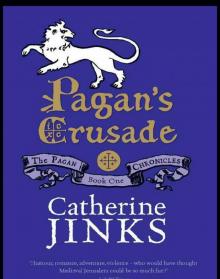 Pagan's Crusade
Pagan's Crusade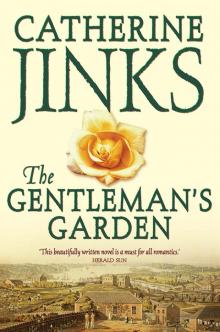 The Gentleman's Garden
The Gentleman's Garden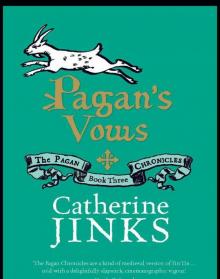 Pagan's Vows
Pagan's Vows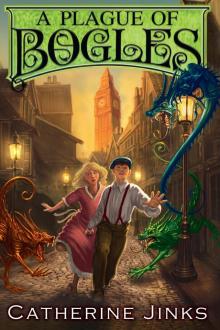 A Plague of Bogles
A Plague of Bogles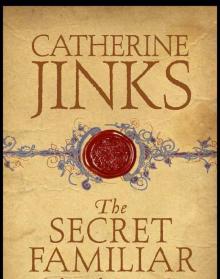 The Secret Familiar
The Secret Familiar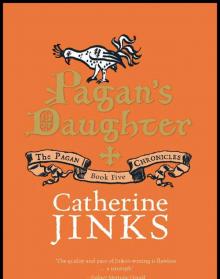 Pagan's Daughter
Pagan's Daughter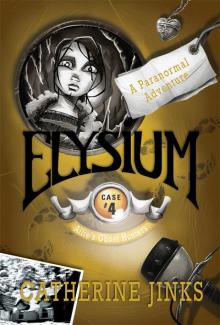 Elysium
Elysium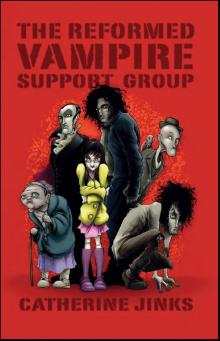 The Reformed Vampire Support Group
The Reformed Vampire Support Group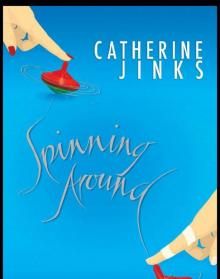 Spinning Around
Spinning Around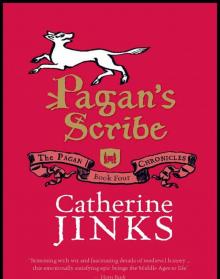 Pagan's Scribe
Pagan's Scribe Evil Genius
Evil Genius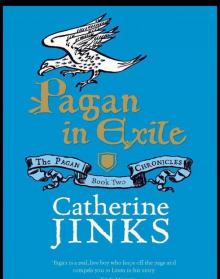 Pagan in Exile
Pagan in Exile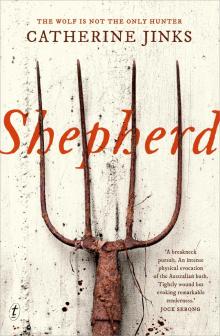 Shepherd
Shepherd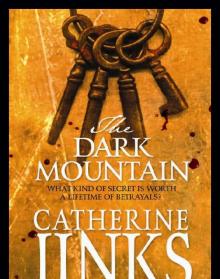 The Dark Mountain
The Dark Mountain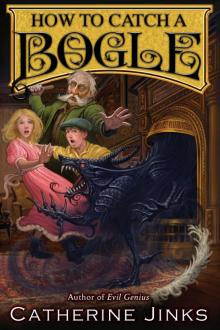 How to Catch a Bogle
How to Catch a Bogle Saving Thanehaven
Saving Thanehaven The Genius Wars
The Genius Wars The Abused Werewolf Rescue Group
The Abused Werewolf Rescue Group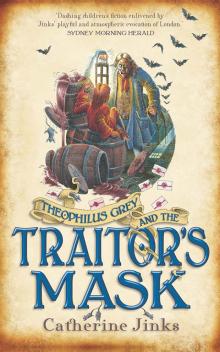 Theophilus Grey and the Traitor's Mask
Theophilus Grey and the Traitor's Mask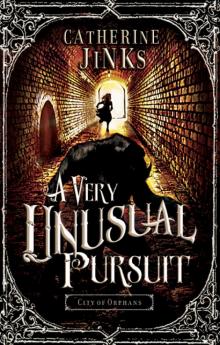 A Very Unusual Pursuit
A Very Unusual Pursuit Genius Squad
Genius Squad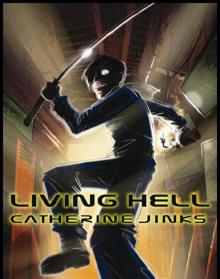 Living Hell
Living Hell The Road
The Road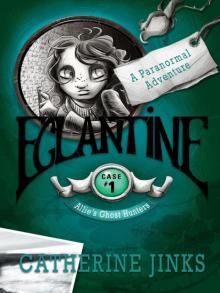 Eglantine
Eglantine